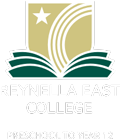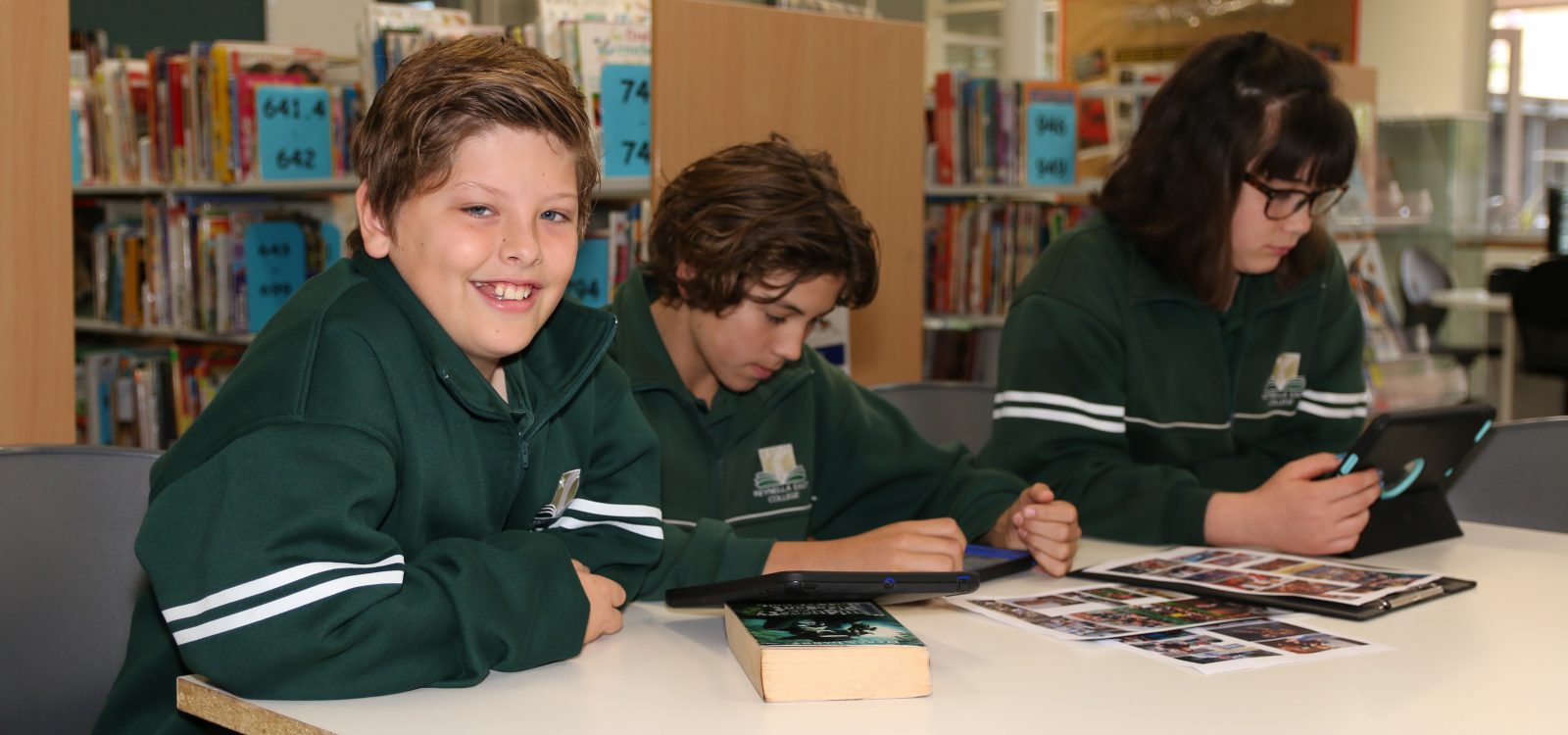| Rather than say… | Try… |
| Calm down | How can I help you? |
| Stop crying | I can see this is hard for you |
| You’re OK | Are you OK? |
| Be quiet | Can you use a softer voice? |
| Don’t hit | Please be gentle |
| Stop yelling | Take a deep breath, then tell me what happened |
| Don’t get upset | It’s OK to feel sad |
| Don’t interrupt | I can see you’re excited to share your ideas |
Resources to Support Student Wellbeing
The Student Wellbeing Leaders at Reynella East College have collated resources, articles and websites for you to support your child’s wellbeing. This page will be updated regularly with new and relevant content.
For more information on accessing support at school, please visit our Student Support page.
Michelle Lee: Years P-6 School Wellbeing Leader
Vic Corbett & Karen Pearce: Years 7-12 School Wellbeing Leaders
Please scroll down for more resources and information:
The Smith Family Learning for Life Scholarship
The Learning for Life program works in partnership with families to support their children’s education and increase their chances of success at school. The program supports children’s education from primary to post-school studies, like TAFE or University. Families who meet the criteria and complete the registration process will receive $478 a year for students in Reception to Year 10 and $772 a year for student in Years 11 and 12 to support with the cost of educational expenses, such as uniforms, school supplies and excursions. They will also receive access to a range of programs and offers to support the students educational journey.
Learning for Life provides:
- Support from a dedicated Family Partnership Coordinator
- Access for educational programs for the whole family
- Scholarship money to help with the costs of schooling
Eligibility
To be eligible for Learning for Life, you must:
- Have a Health Care or Pension Concession Card
- Have a child in Reception to Year 8 at a school that The Smith Family works with (that’s us!)
- Support your child to attend school regularly
Register
To register your interest in Learning for Life, you need to:
- Click this link: https://www.thesmithfamily.com.au/campaigns/learning-for-life-expression-of-interest
- Fill out the relevant details (your name, phone number, child/ren’s details and school information)
- You will receive an email from The Smith Family with information about the next steps.
Urgent Mental Health treatment goes 24/7
A relatively new service has opened up in the city for people who are requiring urgent mental health treatment. Previously the only place that this could be accessed was at the Emergency Department of a hospital but this service is designed to reduce the wait times that people would ordinarily experience if they presented at a hospital’s emergency department.
The following flowchart is a helpful tool to refer to so you can quickly identify if accessing this support is the most appropriate service for the person you are supporting.
**Note – they are now open 24/7** You can arrive or make a referral 24 hours a day 7 days a week.
For more information please go to https://www.umhcc.org.au/
StandBy program supporting people impacted by suicide
The StandBy program is focused on supporting anyone who has been bereaved or impacted by suicide at any stage in their life, including Individuals, families and friends.
StandBy is accessible 24 hours a day, seven days a week, providing free face-to face and/or telephone support at a time and place that is best for each individual.
This support is continued for up to two years to ensure those that engage with StandBy are not alone and receive ongoing support.
Contact them 24/7 on 1300 727 247 or by emailing [email protected]
Lifeline 24/7 Text Service
People in need of psychological support will now be able to text Lifeline and get help at any time of day or night.
The mental health charity has launched a 24/7 crisis text service to expand its support lines.
People can send a confidential text message to 0477 13 11 14 at any time and will be connected to a trained Lifeline crisis supporter after answering a few questions.
headspace: Supporting Young People (information for parents and carers)
In 2023, our Year 7, 8 and 10 students engaged in headspace sessions on Mental Health Care. To complement the student sessions, we ran an online workshop for parents/caregivers giving them an avenue to broach mental health care with their young person. The workshop:
- gave an understanding of mental health and wellbeing in young people;
- gave a guide to carers/parents of changes that may indicate a young person is going through a tough time;
- identified strategies to connect and communicate with young people; and
- increased knowledge about how to support a young person and where to access professional support.
If you were unable to attend the online session or you did but wanted further information, headspace has compiled a resource kit for parents/caregivers:
Access the resources hereIf you have any concerns about the wellbeing of your young person, please feel free to make contact with the Wellbeing Leaders.
Domestic & Family Violence
If you or someone you know is experiencing domestic violence, you can call:
The Domestic Violence Gateway on 1800 800 098
– Leave name and contact details for a call back
For access to 24 hour domestic violence counselling call 1800 RESPECT (1800 737 732)
The Southern Domestic Violence Service also offers:
– accommodation for women and children that is safe and will support them through a crisis
– counselling and support (non-accommodation)
– support and referrals for legal and financial matters
– assistance looking for long term housing
– education and training
Go to https://www.dvrcv.org.au/southern-adelaide-domestic-violence-service-inc
Child Support When Your Child Turns 18
Normally child support will cease when a young person turns 18, however if the young person is still enrolled full-time in secondary education (school or TAFE), caregivers can apply to extend child support payments until the end of the year.
Click here for more information Click here to download the form to apply for this extension
Body Dissatisfaction – A Family Approach
Body dissatisfaction in our young people is becoming more prevalent with a range of factors contributing to and influencing young people’s views of their own body. The Butterfly Foundation offers a range of resources for families to access to start a conversation at home around body acceptance or get some assistance when families feel that a young person is displaying the signs of body dissatisfaction.
The following link to the Butterfly Foundation resources for families could be useful conversation starters at home:
https://www.butterflybodybright.org.au/
The Butterfly Foundation also offers a helpline, web chat or email service.
The Butterfly National Helpline provides free and confidential support, Australia-wide, to anyone experiencing body image or eating concerns. 8am-Midnight (AEST), 7 days a week.
Contact the Butterfly National Helpline to talk through your concerns about a child, or anyone in your school community, by phone (1800 ED HOPE), webchat or email.
www.butterflynationalhelpline.org.au
If it is a medical emergency, please contact 000.
Vaping
Here at Reynella East College, we have noticed a trend of young people using e-cigarettes and vaping. There is a perception that the effects are less harmful than cigarettes, but do they truly understand the potential effects of vaping? This video may dispel some of those misconceptions:
Laws relating to vaping
Under the Controlled Substances Act (SA) 1984 it is an offence to:
- sell or supply e-cigarette products to a person under the age of 18 years
- use e-cigarettes in public places that are currently smoke-free under the law, including in a motor vehicle if a child under the age of 16 years is present
Reynella East College is deemed smoke- free under the law, so vaping on site is an offence.
If you would like further information on vaping and its effects to discuss with your young people, go to www.nobrainer.org.au
Strategies for Emotional Reactions
Using Positive Language
Sometimes when our young person is having an emotional reaction, it can be difficult to choose the right words to soothe them and get them to begin to problem solve. As parents/caregivers we instinctively want to solve the issue and make it all better. However, unintentionally our own emotions can come to the fore and inflame the situation further or make the young person feel unheard. When supporting our young person to regulate their emotions we need to use positive language.
Self-Regulation Activities
Working with your young person on self-regulation strategies is a good way to ensure that if you or another adult are not available to talk with them when they are having an emotional reaction, they can self soothe.
- Breathing at different paces or paying careful attention to the breath. This engages different parts of the brain. Focusing on breathing helps with focus, calmness and emotional control.
- Listening to music with 50 to 60 beats per minute, which can significantly reduce heart rate, lower blood pressure and can help bring breathing back under control.
- ‘If…then’ plans are helpful for young people with self-regulation challenges, making positive actions more automatic.
- Belly breathing brings down the heart rate.
- Mindfully noticing external environment to connect with the senses: sight, smell, touch, sound.
- Detailing memories of being safe, calm, connected and experiencing joy.
Obviously these are not the only strategies and we would love to hear from you if you have other methods we can share with the school community.
Social Media Guidance
Social media influences many facets of a young person’s life. Children are accessing many different platforms with an array of appropriate and inappropriate content. As care providers, it is therefore important to educate our young people on what is appropriate content and what to do if they access something that they perceive as disturbing or illegal.
The following websites may be of assistance when having discussions with our young people about social media use:
Inappropriate Content Factsheet Dealing with Disturbing Videos Being Safe on the InternetLegal Matters
Do you want advice on areas of the law? The Legal Services Commission have a range of fact sheets on their website that can help you understand different areas of the law, now and into the future. Click here to access them. Information topics include:
- Young People and the Law
- Going to Court (what to expect, fines, representation, etc)
- Child Support
- Accidents
- Traffic Offences, and more
Each fact sheet is broken down into language that doesn’t require a law degree to understand! We will feature different topics, in particular for young people. It would be a good opportunity for you to sit down with your young person at an appropriate time and discuss the information in them. This may open up some fruitful discussions with your young person – parents may be surprised about some of the legal content too.
Social Media Factsheet Consumer Rights for Young People Alcohol, Young People and the Law Parties and the Law
Wellbeing During the COVID-19 Pandemic
These are difficult times. People all over the world and all over the country are grappling with COVID-19, in all different stages and circumstances. This experience is forced on us, so let’s cope with it in healthy ways as a school community.
For our young people, routine is the key. Psychologically reacting in unhealthy and unproductive ways can amp up the concern and uncertainty our young people are feeling. As they work from home, let’s try to normalise their education as much as we can:
• Promote regular waking and bed times to help children develop a sense of purpose for each day
• Suggest they get dressed in their school uniform for the day of education
• Follow their timetable as though they were on site
• Prepare recess and lunch before the school day starts so that it is ready to go at appropriate break times
• Have a list of physical activities young people can undertake at break times to help them feel refreshed when they re-settle to continue working
Reynella East College staff are very mindful of the disruptions to your usual routines that the presence of this virus is causing. Information, conversations and increased levels of stress in the community can lead to people feeling overwhelmed. Knowing what information to trust can also be challenging.
We have sourced a range of useful links for either personal use or for sharing with your family and friends, but this does not replace the existing wellbeing services we offer. Please continue to make contact with us via email, direct messaging or by phoning the school if/when needs and concerns arise – we are here to support you.
Headspace:
• Managing stress related to the COVID-19 virus, including tips to maintain a healthy mindset: click here.
• e-Headspace, a free online counselling platform: click here.
Kids Helpline:
• WebChat counselling: click here.
• Phone counselling: 1800 55 1800 (free and confidential)
ReachOut:
• Self-care tips: click here.
• Professionally reviewed self-help tools-and-apps: click here.
Youth Beyond Blue:
• Mental health information: click here.
• Online chat forum: click here.
• Phone counselling service: 1300 22 4636
Black Dog Institute:
• Dream On: smart phone app trial for young people experiencing sleep difficulties: click here.
• Self-help tools and apps: click here.
Head to Health (government search engine for locating information and resources on a range of topics):
• Sam the Chatbot: click here.
School TV:
• Coronavirus: a guide for parents: watch the video here.






